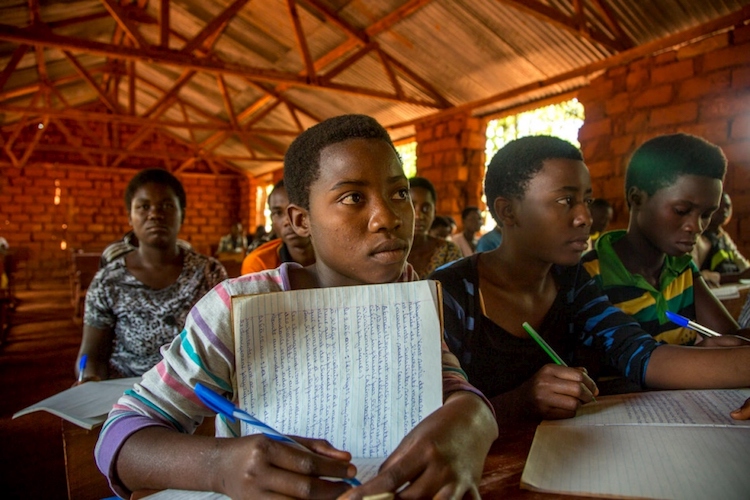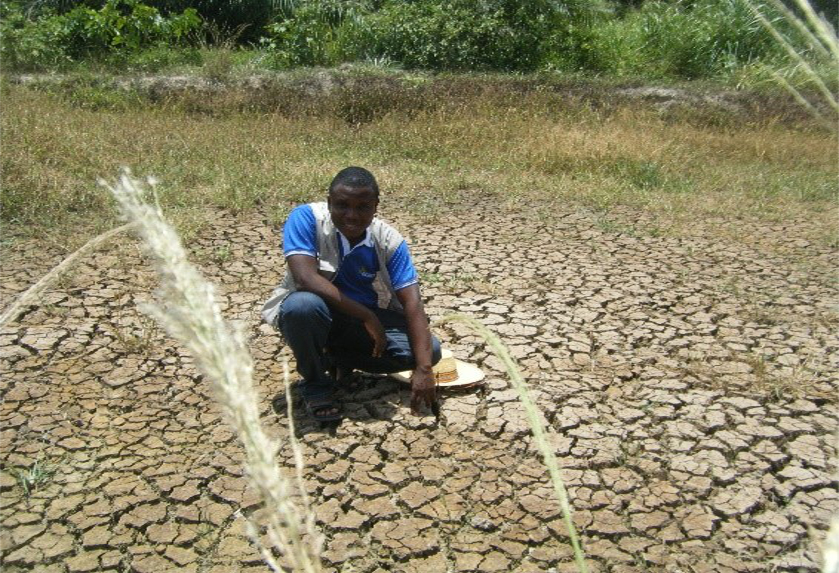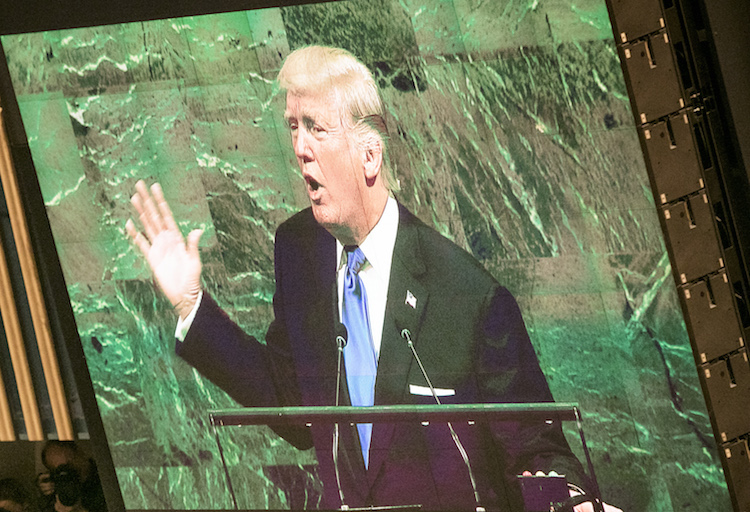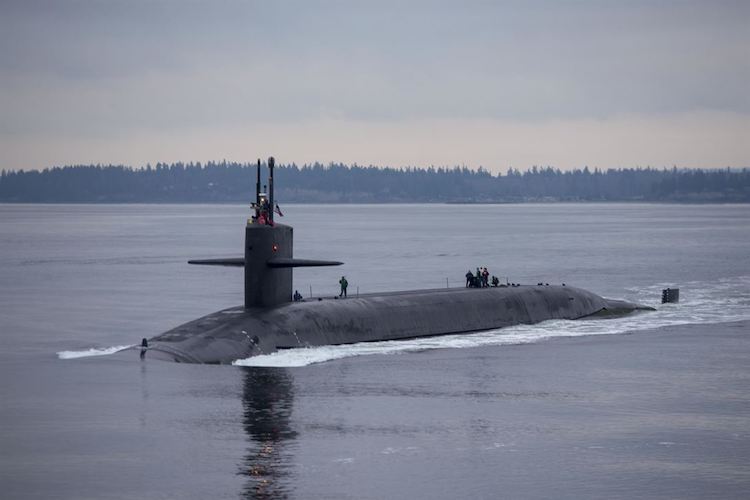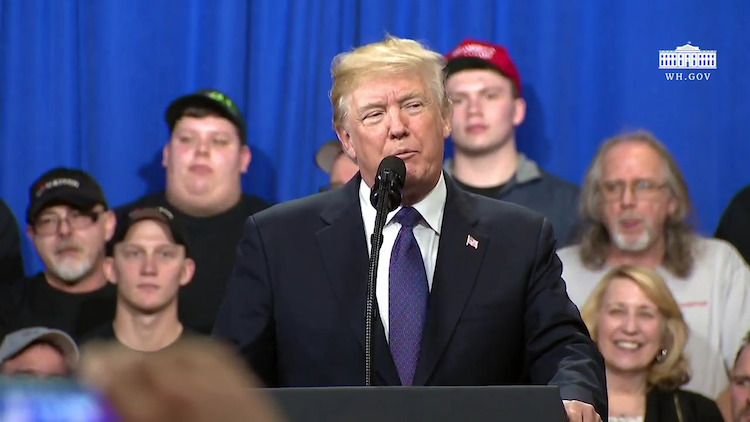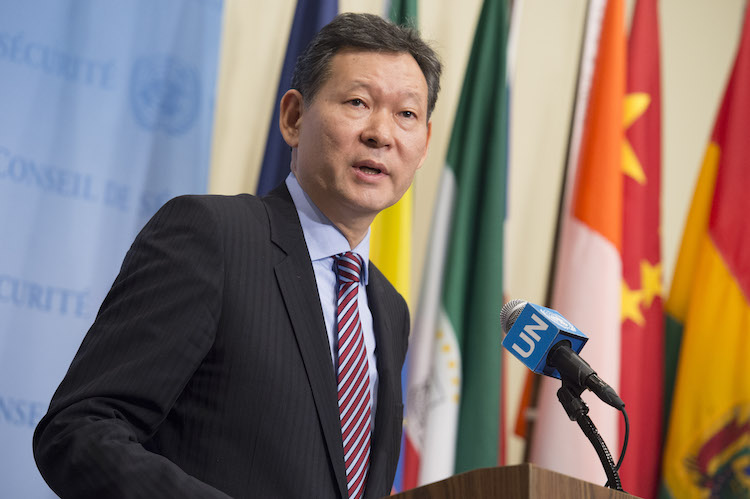Viewpoint by Scott Morris Scott Morris is a senior fellow at the Center for Global Development and director of the US Development Policy Initiative, which seeks to broaden the US government’s approach to development. He also works on issues related to the International Financial Institutions (IFIs) and particularly the relationship between the IFIs and the […]
Refugees, Migrants Need Courageous European Leadership
Viewpoint by Idriss Jazairy Ambassador Idriss Jazairy is the executive director of the Geneva Centre for Human Rights Advancement and Global Dialogue and the former head of a UN specialised agency, IFAD. This article first appeared* in EURACTIV on February 5, 2018 and is being re-published with their permission. GENEVA (IDN) – More people than […]
Nuclear Posture Review ‘Recipe for a Disaster’, Warns Pugwash
By J Nastranis NEW YORK (IDN) – The Nobel Peace laureate ‘Pugwash Conferences on Science and World Affairs’ has warned that the latest development of U.S. nuclear weapons policy “will serve only to increase the saliency and attractiveness of nuclear weapons, and will certainly not enhance international security.” Commenting on the United States 2018 Nuclear […]
UN Calls for Keeping the Promises to the World’s Poorest
By Ramesh Jaura BERLIN | GENEVA (IDN) – Forty-seven countries, already the world’s most disadvantaged, will fall short of achieving sustainable development goals set by the United Nations in its 2030 Agenda unless urgent action is taken, a new study has warned. Recognised as least developed countries (LDCs) in UN jargon, the 47 are known […]
Drought Forces Ghana To Ration Water Supply
By Global Information Network NEW YORK | ACCRA (IDN) – The state-owned Ghana Water Company Ltd (GWCL) has announced that due to severe dry winter winds (called ‘harmattan’) and the drying up of rivers, water deliveries will be rationed over the coming months while the country awaits the rain. “We are sorry to inform the […]
Trump Might Well Break International Law Over North Korea
Viewpoint by Jonathan Power* LUND, Sweden (IDN-INPS) – We are soon going to have a clash between President Donald Trump and international law. This is predicable when one examines the presidential discourse over what to do about North Korea and its possession of nuclear-tipped rockets. He has threatened “fire and fury” which doesn’t sound like […]
Trump Awaits a ‘Magical Moment’ to Ban Nuclear Weapons
By Shanta Roy UNITED NATIONS (IDN) – The 2018 Nuclear Posture Review (NPR), released February 2, is a dangerous departure from the past, and appears to reflect a firm U.S. commitment to readily use the world’s deadliest weapons of mass destruction – even if the United States is only a target of “significant non-nuclear strategic […]
US Tax Reforms Affect 50% of Global Foreign Direct Investment
By Jaya Ramachandran GENEVA (IDN) – Almost half of global investment stock is either located in the United States or owned by American multinationals abroad. The United States ‘Tax Cuts and Jobs Act’, adopted in December 2017, will therefore significantly affect both investment into the U.S. and the investment positions of U.S. firms abroad, according […]
Kuwait Presidency Keen on Enhancing Security Council Working
By J Nastranis UNITED NATIONS (IDN) – While the Middle East, counter-terrorism and Africa will draw the Security Council’s focus in February, the Kuwait Presidency has chosen as its centrepiece a ministerial-level briefing on the purposes and principles of the UN Charter in the maintenance of international peace and security, with the Secretary-General as the […]
Kazakh Security Council Presidency Elicits Praise
By Santo D. Banerjee UNITED NATIONS (IDN) – Kazakhstan has elicited praise for highlighting Afghanistan and Central Asia during its first ever presidency of the Security Council in the month of January. An end-of-the-month “wrap-up” session also reflected appreciation for putting spotlight on non-proliferation of weapons of mass destruction and confidence building measures. Kazakhstan is […]


